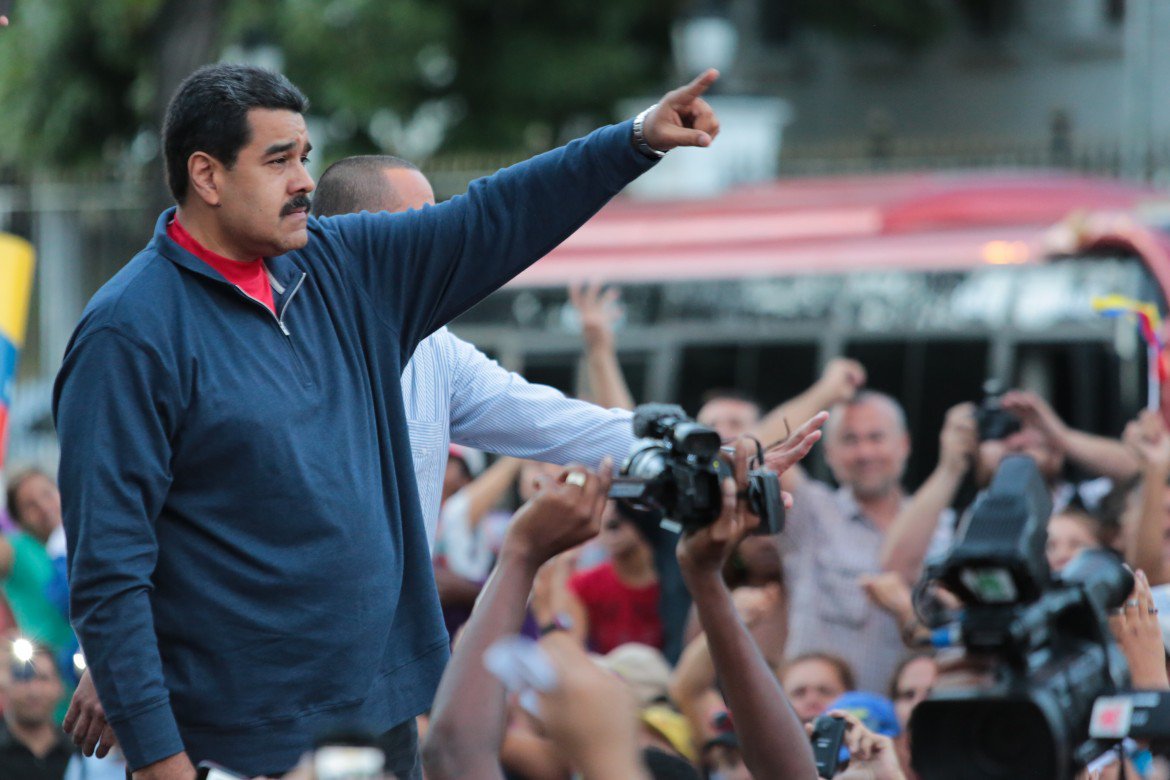Commentary
Testing the water for a coup
The helicopter attack in Venezuela may have been a first test for the overthrow of the Venezuelan regime.

At first, Trump proposed an isolationist vision for the United States. Now, however, the new occupant of the White House is pursuing a policy of clear and devastating interference in international crises. In Europe, he supports Brexit and increases the costs of NATO. In the Middle East, he’s getting involved in wars from Syria to Saudi Arabia to Israel and Palestine. Yes, America first. There’s no design, just a well-organized and dangerous chaos.
This came to mind Wednesday night in light of the dramatic news from Venezuela. A national police helicopter flew over the center of Caracas and threw four grenades at the headquarters of the Supreme Court of Justice, which is guilty of respecting the legitimacy of the democratically elected Nicolas Maduro. Maduro denounced the “terrorist attack” and is ready to defend the Bolivarian Revolution “even with weapons.” More recently, they’ve characterized the story as the act of a rogue exhibitionist, as a “practice run.” That’s possible. The attack was real, although there were no casualties.
We are no longer dealing with demonstrations such as those orchestrated by the right and supported by the global mainstream media in the face of a heavy social crisis with soaring inflation and a lack of food. And those — ignored but strong, organized and combative — defending the government. There have been more than 70 deaths so far, both opposition and pro-Maduro.
The novelty is that there was an armed action against one of the most representative institutions of the Bolivarian government. And the person who claimed responsibility (even showing his face in a video he released) was Oscar Perez, a former agent of the CICPC police force with ties to Miguel Rodriguez Torres, a former interior minister and judge under Hugo Chavez now “in contact with the CIA.”
Maduro has mobilized the military to protect Venezuelan democracy. Tanks patrol Miraflores. The risk is that this will trigger a vicious circle of armed violence, laying the groundwork for a civil war. Although the armed forces do not seem to accept conflict upon which the right is insisting.
The Venezuelan crisis, rather than fester, could certainly take a different path, starting by looking at the different culprits. The first are the government and Maduro, who inherited a country that has begun the revolutionary transition process, where the system of ownership has been called into question. Venezuela is a reference point for the world. But it never created an economic alternative to oil, a failure made irremediable by the collapse of oil prices. And it didn’t strengthen the democratic institutions from below, which also represents the constitutional model of the Bolivarian Revolution.
The result was a kind of self-isolation. Now the unresolved problems of the balance of powers have come to a head — and quickly, thanks to the institutional coup in Latin America carried out by the policies of Brazil and Argentina, who had represented the “return” of the entire continent. Then came Trump.
But the other side is a far-right opposition — populist, oligarchic and intolerable — which now openly incites a popular, militant uprising against a revolution that began 18 years ago with the election of Chavez. It’s a contemptuous opposition that, at the request of parliament, doesn’t listen to reason, not even when Pope Francis tries to get them to admit their powerlessness. Their stated goal is to disrupt elections for a constituent assembly on July 30 that would constitute a return of politics to the center of the conflict, which otherwise will continue to worsen.
So what does Trump have to do with this? He’s the president of the United States, which spoils every climate strategy, returns the focus of American economic development to perishable economic resources like coal and oil, and makes the control of these resources the axis of its internal political capital. He also promised to kick Maduro out of the Venezuelan presidency. Among other things, he appointed the former CEO of ExxonMobil, Rex Tillerson, has Secretary of State. The degeneration of the crisis in Caracas could create a problem of energy “shortage” not just in Latin America, but in the United States and worldwide.
Just a few weeks ago, an editorial in The New York Times explained better than any other the “new” American intentions toward Venezuela, a massive producer and exporter of oil. In short, the influential American newspaper asked: How is it that the greatest country in the world for oil reserves has Soviet institutions? Yeah! How is that possible!? The water is being tested for a coup.
Originally published at https://ilmanifesto.it/prove-di-golpe-a-caracas/ on 2017-06-29
